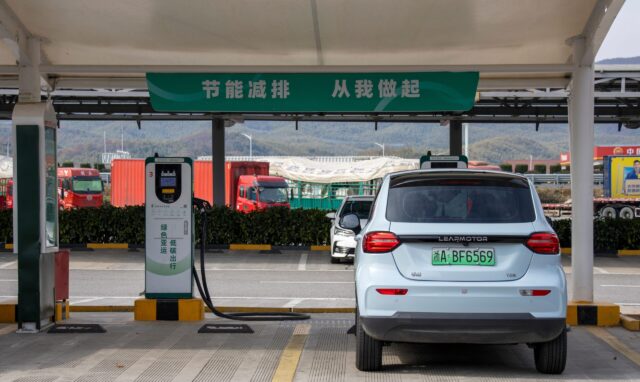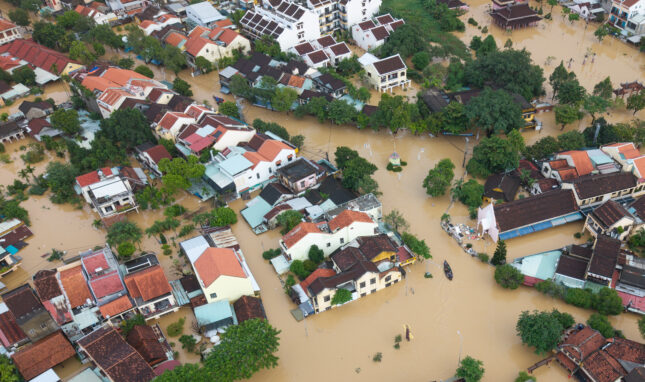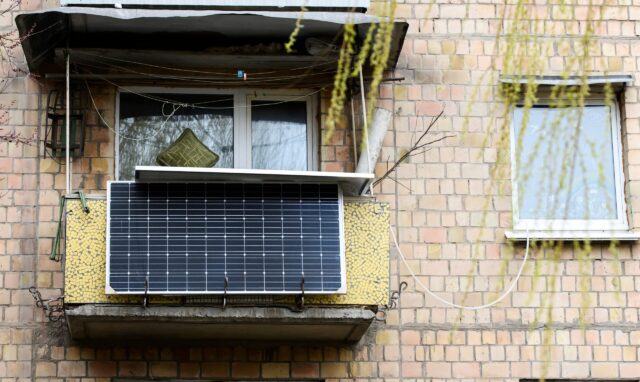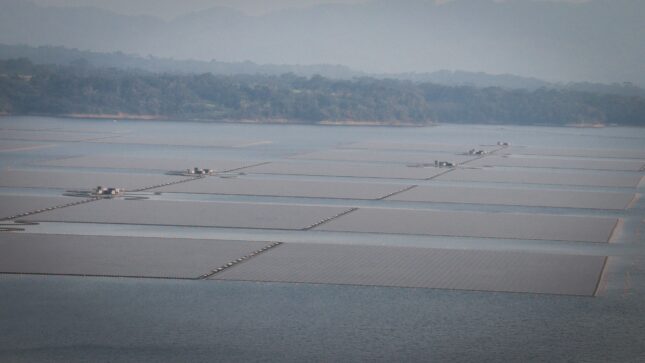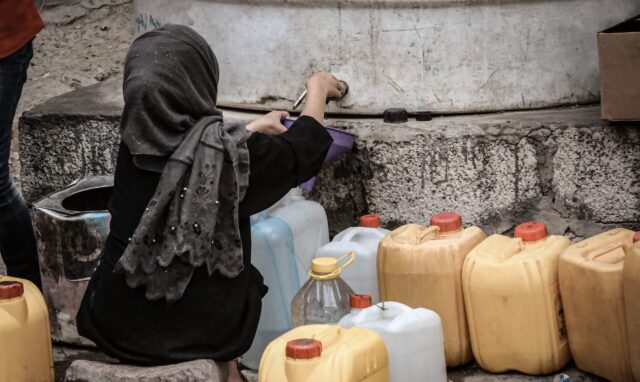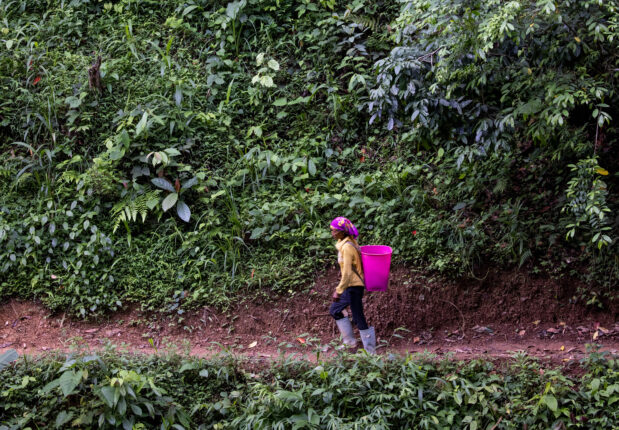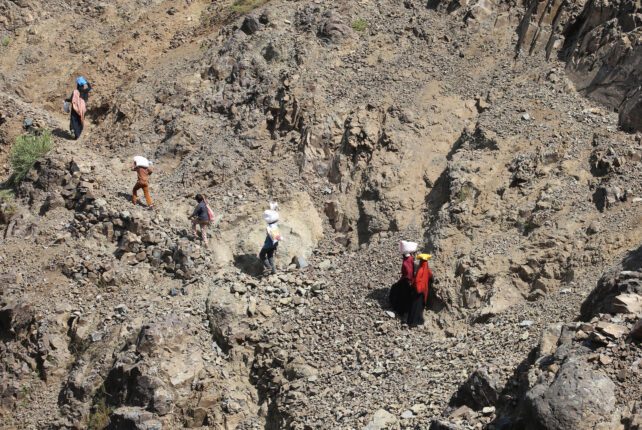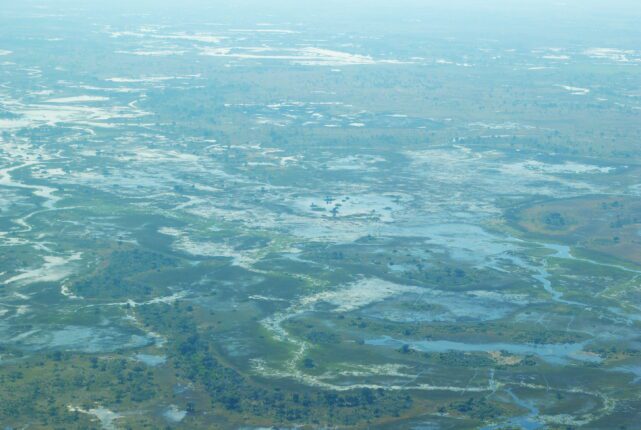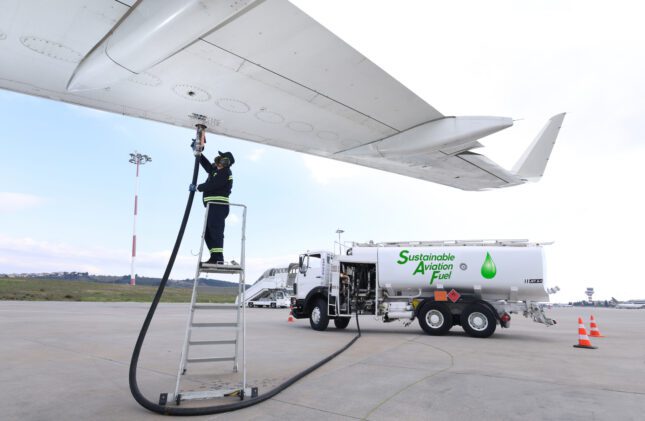-
Environmental Security Weekly Watch: February 2-6, 2026
›A window into what we’re reading at the Stimson Center’s Environmental Security Program
Final Version of Global Critical Minerals Treaty Stripped of Traceability Measures (Mongabay)
At the seventh U.N. Environment Assembly in December 2025, Colombia and Oman jointly proposed a legally binding international treaty to create traceability and due diligence mechanisms across global mineral supply chains. Their proposal faced resistance from multiple countries including Saudi Arabia, Russia, Iran, Chile, and Uganda, and ultimately resulted in a watered-down nonbinding resolution on mineral governance that excluded traceability provisions entirely.
-
From the Forests of Yunnan: Rethinking What Tea Can Be
›“Where is the tea?” I asked after our class had hiked through densely wooded hills for half an hour, looking around in confusion. I was among a team of Duke Kunshan University (DKU) graduate students led by Dr. Binbin Li to study tea crops grown in the tropical forests of Xishuangbanna, Yunnan Province.
-
Can Climate Security Survive the Crisis of Multilateralism?
›Multilateralism is under threat, as many global powers increasingly choose to center their security priorities around defense and economic competition over international cooperation. This shift toward short-term national interests risks undermining progress on joint challenges, including climate change, peace and justice. What will be lost if the climate security agenda becomes a battlefield of competing interests? How can peacebuilding and development actors respond?
-
Environmental Security Weekly Watch: January 26-30, 2026
›A window into what we’re reading at the Stimson Center’s Environmental Security Program
High Seas Treaty Takes Effect as Global Ocean Protection Framework (Associated Press)
The High Seas Treaty is the world’s first legally binding agreement to protect marine life in international waters, and its broad impacts began when it entered into force on January 17, 2026. The treaty governs the nearly half the planet’s surface comprised of vast ocean areas beyond any individual country’s exclusive economic zone—an area which faces threats from destructive fishing, shipping, plastic pollution, overfishing, and potential deep sea mining. The agreement also establishes the first framework for creating Marine Protected Areas on the high seas, which constitute about two-thirds of the world’s ocean.
-
Can China Help Indonesia Shift Gears on Electric Two-wheelers?
›Indonesia produces more than half of the world’s nickel output – a critical component in batteries for four- and two-wheel electric vehicles (EVs). Mostly Chinese-owned smelters work around the clock in Sulawesi to process the nickel ore and ship it across the globe. Indonesia’s resource nationalism – the government policy banning ore exports and forcing domestic processing appears to have worked well – but only in the upstream segment of the supply chains.
-
Water Cooperation is Under Threat
›Rivers, lakes, and aquifers ignore borders and politics, binding countries, people, and ecosystems together. This shared reality has long required cooperation, even among states divided by tensions or conflict. Through technical dialogue, data sharing, and joint institutions, countries have often quietly managed floods, negotiated infrastructure, and protected water quality.
-
Environmental Security Weekly Watch: January 19-23, 2026
›A window into what we’re reading at the Stimson Center’s Environmental Security Program
Community Forests Are the Frontline of a Minerals Race in the DRC (Mongabay)
In the Democratic Republic of Congo’s copper-cobalt belt, local communities are establishing community forest concessions to secure land titles and prevent eviction by mining companies. Sparked by previous displacement incidents, these concessions allow communities to hold up to 50,000 hectares in perpetuity. This region holds approximately 70% of the world’s cobalt reserves, which has attracted intense competition from Chinese companies, the United States, and the DRC state-owned Gécamines to obtain minerals essential to high-tech, weapons, and clean energy industries. Between 2001 and 2024, 1.38 million hectares of tree cover in Lualaba and Haut-Katanga provinces were lost due to mining activities.
-
Is China’s Sustainable Aviation Fuel Ready to Take Off?
›Aviation is one of the fastest-growing sources of greenhouse gas emissions globally, contributing around 2.5% of total global CO₂ emissions. In China, aviation contributes about 12% of the nation’s transport-related emissions, making it a critical sector to address as the country aims for carbon neutrality by 2060. Despite ambitious global targets, international sustainable aviation fuel (SAF) production is falling behind schedule. A recent report highlights that worldwide production could fall 30% to 45% short of the global aviation sector’s 2030 goals due to high production costs, economic uncertainty, and slow adoption rates.
 A Publication of the Stimson Center.
A Publication of the Stimson Center.

